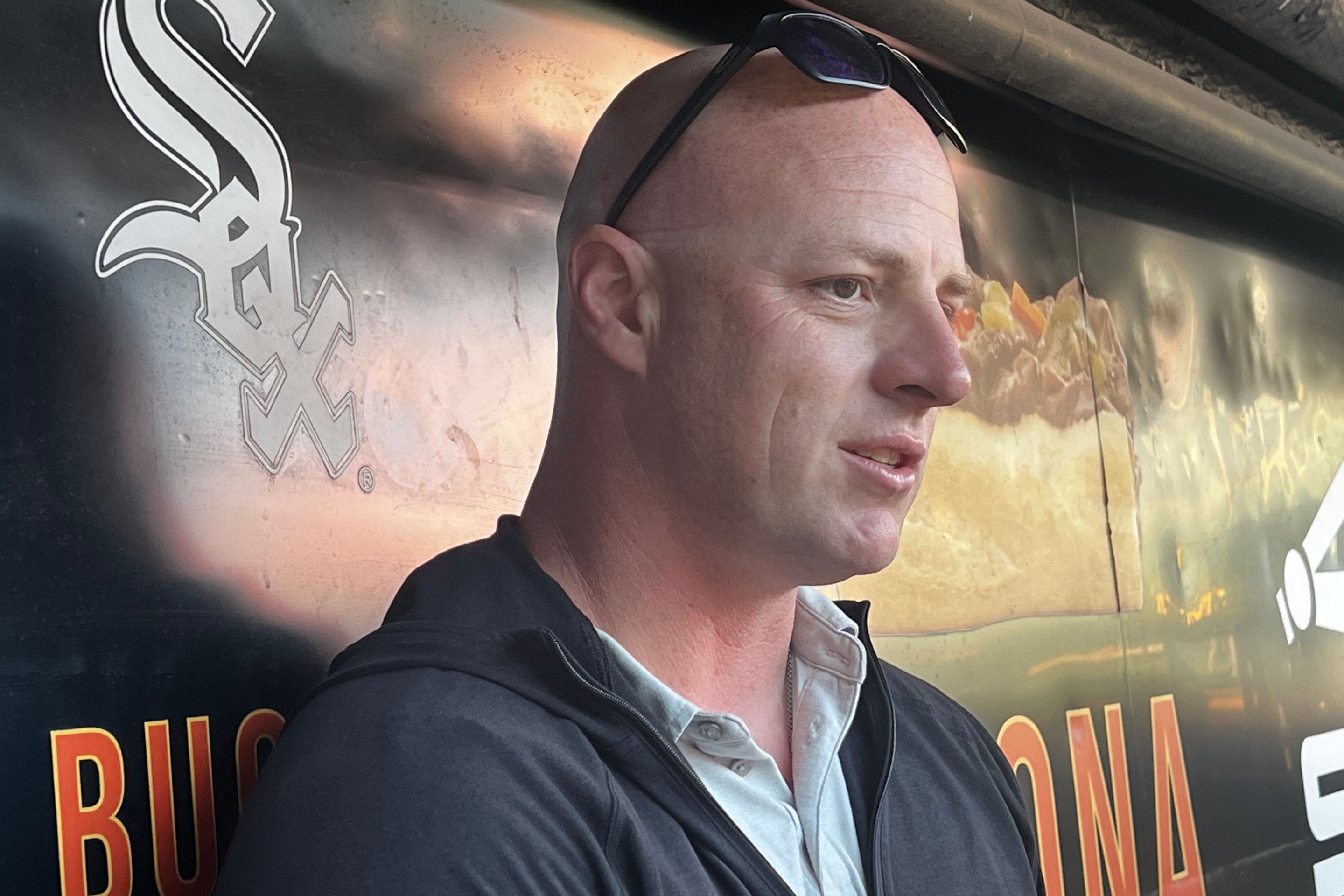Chris Getz spoke to reporters before the White Sox lost their 13th consecutive home game on Monday, and Jerry Reinsdorf issued a blanket statement in response to national media inquiries after the White Sox lost their 15th consecutive home game on Wednesday. Both emphasized a word that Pedro Grifol ruined during his first year managing the team.
Here's Reinsdorf:
“Everyone in this organization is extremely unhappy with the results of this season, that goes without saying. This year has been very painful for all, especially our fans. We did not arrive here overnight, and solutions won’t happen overnight either. Going back to last year, we have made difficult decisions and changes to begin building a foundation for future success. What has impressed me is how our players and staff have continued to work and bring a professional attitude to the ballpark each day despite a historically difficult season. No one is happy with the results, but I commend the continued effort.”
“I expect to have more to say at the end of the season.”
And here's Getz:
"I know from an infrastructure standpoint, I’ve said this from the beginning, so much of our focus is the foundation of the organization, whether that be on the international side, the amateur side, player development and the various areas that make up an organization. We’re looking for individuals that can do many things, that are very talented, so we can scale the talent that they have and have a far reach, whether it be down at your academy, apply it to every acquisition and the development of our players. So that’s what we’re focused on, that’s what we’ve been focused on, and we’ll continue to do so.”
Thanks to Grifol, that's a new F-word that sets off alarms in my brain.
While the White Sox stumbled through the rake field that was the 2023 season, Grifol repeatedly insisted that a foundation and a culture was being set. Then the team was sold for parts at the deadline, Keynan Middleton opened fire on the situation from which he'd been liberated, and Grifol responded by saying the team was laying a new foundation on rock.
Grifol laid bare how much "building a foundation" can be used to cover for abject failure. A solid foundation is absolutely necessary, and from a distance, it looks like nothing until it's sound enough to start supporting something. That also means that, from a distance, it's impossible to tell if you're watching a no-show job until enough time passes, and everybody realizes something should be there by now.
Fortunately for the goo-goos among us, Grifol inadvertently conducted a speed run of that process and was revealed to have nothing within mere months. For a general manager, however, that process could take years, and that puts customers in either a holding pattern or a holding cell.
Those who think Chris Getz is capable enough can take solace in the idea that the situation didn't offer a whole lot of options. Any qualified general manager/president of baseball operations/hardball czar would've had to figure out how to balance serious budget cuts while being stuck with the go-nowhere contracts of Andrew Benintendi, Yoán Moncada and Eloy Jiménez. Perhaps another evaluator would've made different, slightly better bets, but you have to admit that the conditions were conducive to clumsiness.
For those who think Getz isn't qualified to hold a GM job and would've never made a cut in a proper search process, the results of this season reinforce all priors and make it impossible to refute, because literally anybody could build the worst team in baseball history.
This tension is such a drag, because contrary to Rick Hahn's beliefs, all White Sox fans actually want to believe their team is capable of success, whether immediately or in a reasonable amount of time. White Sox fans just know that Reinsdorf is hard-wired to repeat mistakes, and so expecting the worst is standard self-care. Sometimes predicting failure is the only way to feel smart about spending so much time watching them.
Getz can't avoid talking about foundations and processes because he's not wrong. Everything needs to change. Thus, it's up to the consumer with whether it's worth suspending disbelief. What doesn't help is when Getz downplays the amount of agency he has:
“I think if you would have told me we were going to end up flirting with the record I would have been a little surprised. Now if you would have told me prior to the year that we would have ended up with over 100 losses, 105, 110, I wouldn't have been as surprised. But this is the cards that we've been dealt at this point.
Subject-verb agreement aside, the White Sox aren't alone in dropping into the passive voice to sidestep accountability. That's how "mistakes were made" and "there are unknown unknowns" become clichés in half-admitting failure.
But Getz can't act as though the 2024 White Sox are something that happened to him because no single non-Reinsdorf figure around has had a bigger hand in shaping them, whether as general manager now or as the director of player development before. Another GM who was hired from outside the organization after a vigorous, competitive process could deploy this excuse. Getz doesn't have this card, and he can't steal it from the deck or somebody else's hand. That's his cross to bear as the complacency candidate. It's guilt by association, sure, but Reinsdorf's ideas are usually bad ideas, and hiring Getz was his only idea, so while you can't can't quite say A=C, it's a safe default assumption.
While it'll take five consecutive 90-win seasons to get Getz's lifetime record back to .500 at this point, he'll have opportunity to reduce the credibility deficit elsewhere. He'll get to reshape the international program, and he has a manager to hire, and the latter will test his ability to differ from the previous administration. Here's how he explained the process:
Different levels of involvement. Our baseball operations group will certainly be the large part of building up the criteria and building up the interview process, you have people inside and outside the organization that can be of help whether it’s through the referral process or gathering more background information. I’d say it’s fairly broad with the involvement. It’s going to be my decision, the baseball ops decision and you know we’re excited about the next Chicago White Sox manager.
And at the end of what turned out to be his last full season as GM, here's how Hahn explained the White Sox's decision-making process:
“Similar to probably just about every major decision since I’ve been around here for over the last 20-odd years, in the end, it’s a collaborative process and ideally, Kenny, Jerry and I come up with a consensus,” Hahn said. “I’ll be leading the process. I’ll be the one having these initial conversations here, but over the coming months — or coming weeks, I should say, I really hope it’s not months — over the coming weeks, there will be a number of people being part of these conversations. Obviously, Jerry, Kenny, Chris Getz, Jeremy Haber, we may have some former players involved as well. It’s really a matter of getting the best opinion of someone and in the end, making a recommendation and all being on the same page.”
Collaboration is something to strive for on paper, until you look at the body of work over the course of years and realize the buck stops with nobody. Hahn was the public point person stating goals and establishing benchmarks, but Reinsdorf could ignore him to hire a manager, Kenny Williams could trade players without asking, and who knows whose preferences won out in the draft room from year to year.
Getz saying, "It's going to be my decision" can be a refreshing departure from the way the White Sox have done things, assuming nobody else in the organization is allowed to interfere. Whether he's talented enough to make good decisions is another matter entirely, but taking charge, making decisions and taking accountability for the results with minimal deflection and obfuscation counts as substantial improvement no matter what, if only because it'll be a lot easier to know who did what if things fail to improve.






